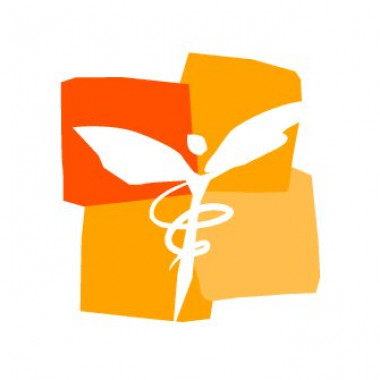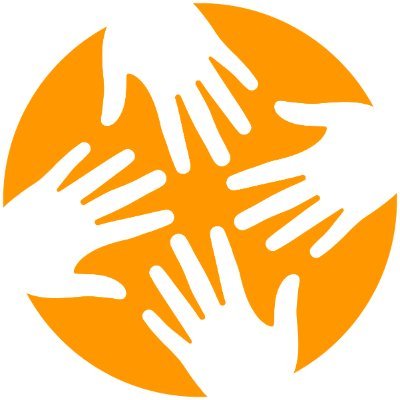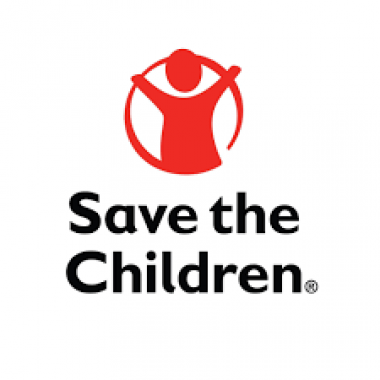Violence in Haiti’s capital of Port-au-Prince recently escalated as heavily armed gangs attacked the National Palace, setting afire with petrol bombs part of the Interior Ministry, the BBC reported. Haiti’s international airport suffered sustained attacks, closing all flights, including one carrying Prime Minister Ariel Henry whose plane was refused permission to land. The United States and European Union have been evacuating non-essential personnel.
But what about charities? Some international aid organizations have worked in Haiti to provide temporary aid after natural disasters, while others have maintained ongoing operations in the country for many years to provide access to healthcare, food, and clean drinking water.
CharityWatch reached out to some of our Top-Rated charities known to have worked in Haiti in the past to ask if they are continuing to provide aid amid the escalating violence and political instability in the country. We hope you will consider making a donation to one of these essential organizations today.

Direct Relief has been actively
involved in humanitarian efforts, including providing aid to Haiti in response
to various crises, such as natural disasters and health emergencies, for many
years. During this time, Direct Relief has maintained a strong
relationship with its network of health care focused organizations in Haiti and
continues to work to support ongoing response.
According to the
charity:
“Direct Relief this month granted $1 million in funding to nine local
organizations in Haiti to help offset the increased costs associated with
operating in the country… In addition to the $1 million in grant funding,
Direct Relief has provided more than $3.2 million in medical aid to 11
healthcare organizations in Haiti since March 2023.”
“Direct Relief is not
currently accepting restricted donations for Haiti on its website. However, if
people are interested in restricting their donation to Haiti, they can do so by
emailing [email protected]. People can make an unrestricted gift to
Direct Relief by visiting www.directrelief.org/donate.”
“Direct Relief is committed
to supporting Haiti through the immediate crisis and on a long-term basis
through collaboration with the Pan American Health Organization (PAHO) and its
network of health care focused organizations operating on the ground."

Doctors Without Borders, also known as Médecins
Sans Frontières or MSF, operates medical facilities and health programs in and
around the capital Port-au-Prince and in Haiti's South region. All medical
facilities provide care free of charge to patients.
According to the
charity:
“We saw an increase in patients with gunshot wounds and patients with
traumatic injuries due to the escalating violence and political unrest since
February 28. In response, we added 25
beds for trauma patients at our hospital in Tabarre, reaching a temporary total
of 75 beds for trauma patients in the facility. We accelerated our timetable
for opening the Carrefour trauma hospital and for reopening the Turgeau emergency
center due to the increased needs since February 28. Since the escalation of the
violence from February 28 onward, we have temporarily suspended mobile clinics
in several areas of Port-au-Prince and intend to begin them again when it is
safe to do so.”
“We collect donations
globally for our programs and are not asking donors to restrict their donations
specifically for Haiti at this time. For this reason we do not have a web page
currently soliciting restricted donations for Haiti. Donors may, however,
restrict their donation to our Haiti programs if they choose, by contacting our
donor services team.
Please see our website doctorswithoutborders.org for updates on our Haiti operations and on other contexts."

Medical Teams International was operational in Haiti for several humanitarian emergencies
occurring between 1994-2017. However, Medical Teams is not currently operating
in Haiti.
According to the
charity:
“Medical Teams has a long history of health-focused, humanitarian
presence and effective partnerships in Haiti. We are deeply concerned about the
current violence and instability in the country. Because of our commitment to
serving people in crisis around the world, we are closely monitoring the
situation to determine if and how we can be of support. However, Medical Teams’
support to partners in Haiti ended in 2023, and we do not foresee working with
partners for this response.”
“Because the current
situation threatens to unravel relief and development work that has been
achieved in recent decades, Medical Teams would like to encourage individuals
and organizations to do what they can to support health-focused charities on
the ground in Haiti. In addition to having high poverty levels and being prone
to natural disasters, the country has fragile health systems and
infrastructure. Haitians desperately need reliable healthcare and other
essential services, now more than ever.”

Mercy Corps has worked in Haiti
since 2010. Currently, Mercy Corps is providing emergency cash assistance to
32,500 people and more than 700 small businesses in three departments,
including Port-au-Prince. Since 2019, Mercy Corps has also been working to
reduce violence and help young people pursue opportunities through financial
inclusion and life skills training, reaching more than 8,000 adolescents.
According to the
charity:
“Our staff remain in the country and we are continuing with our
ongoing program providing emergency cash assistance to help people who are in
need of urgent support and in some cases have been displaced multiple times by
violence. Our office in Port au Prince remains open but on an adjusted schedule
to ensure staff traveling to and from their homes as well as to and from our
program locations remain safe. The security and safety of our staff are our top
priority and decisions about staff travel, work schedule and location are
assessed daily. Currently, we remain operating and implementing our
programs in the communities despite significant challenges such as roadblocks
and protests that are unpredictable and impact country leadership’s
decision-making daily. The vast majority of our staff are Haitian and live in
the communities where we work. Some have been forced to leave their homes and
stay with family or friends.”
“Donors to Mercy Corps
are welcome to direct their donations to Haiti when making a donation
here. Donors can always “self-restrict” – that
is, they can make a comment with their donation noting that they would like to
direct it to Haiti, and it will go to support our programs in Haiti.”

Zanmi Lasante, as Partners in Health is known in Haiti, has
been providing high-quality healthcare services to Haitians for over four
decades. Despite the ongoing challenges, the charity continues to operate in
the country and provide health care to those who have limited or no access to
it. The caregivers at Zanmi Lasante are relied upon by 1.3 million people,
equaling roughly 1 in 10 people in the country. Zanmi Lasante’s (ZL) operations
are concentrated in the Central Plateau and lower Artibonite regions. The
services ZL offers are diverse and address a wide range of medical needs.
According to the
charity:
“We are currently accepting donations specifically for Haiti
relief (best link HERE), which will help support our staff and
patients through a range of healthcare services. Our services include HIV care
and programming, deploying mobile food clinics with a focus on children
suffering from malnutrition, and our Journey to 9 Plus program that provides
comprehensive care for pregnant women and their newborns.”
“Ensuring the safety and
well-being of our staff and patients is our top priority, and we are glad to
report that everyone remains safe at this time. Our team is closely monitoring
the security situation throughout the country to ensure that our staff and
personnel are out of harm’s way. For medical students completing their
residency, we have safely accommodated them at ZL facilities, providing
reliable electricity and internet access.”
“To continue reaching as
many patients as possible, Zanmi Lasante is leaning on its wide network,
referring patients from clinics and hospitals in conflict zones to more secure
facilities, and adapting and innovating. For example, patients who require periodic
outpatient visits are being provided with enough medication to self-administer
at home, reducing the need for dangerous travel. ZL is also transporting
supplies in vehicles that don’t look like ready targets to avoid potential
carjackings and assaults. During this time, staff stay on-site longer to limit
risky travel, and ZL provides them with food and hygiene kits. Vulnerable
patients are also receiving food and hygiene kits. Additionally, PIH and ZL are
building a temporary warehouse for medicines and more, located near healthcare
facilities.”

Project HOPE implements a primary health
care program that involves mobile clinics, water and sanitation (WASH), and
Mental Health activities in the departments of Nipes, Sur and Grand'anse.
Donations to Project HOPE for its programs in Haiti can be made here.
According to the
charity:
“At the national level, specifically in Port-au-Prince, the security situation has had a direct impact on Haitians and the nonprofits like us that serve them, given that most government entities are not functioning or are only functioning intermittently, and medical supplies and humanitarian assistance is limited. We've noticed a significant uptick in migration of people fleeing the violence in Port-au-Prince and heading south, which has exponentially increased the demand for support. While the security context is directly affecting Project HOPE's activities, we are continuing to operate mobile medical units, distribute hygiene kits, promote health and hygiene activities, and support mental health needs."

Save the Children in Haiti continues to
operate in the country with the support and collaboration of local partners
working in programs area. Donations can be made here.
According to the
charity:
“Currently, our international staff is working remotely, outside of
Haiti. Close monitoring of the security situation is done daily, and necessary
precautions are being taken to ensure national staff safety and security and
the communities we serve. This monitoring also informs organizational response
strategy to upcoming humanitarian needs. The country office is constantly
evaluating the impacts on programs and reassessing the needs of the population
in Port-au-Prince for an adapted response.”
“Our organization is
working tirelessly to find ways to address the urgent needs of children forced
to flee from their houses due to the violence in Port-au-Prince. We aim to
provide assistance to more than five thousand families. This really represents
a small portion compared to the huge number of families in need. This is why we
are calling and pressing for more support to address the growing needs of
populations. We are also constantly assessing the situation and ready to
provide immediate emergency aid, emergency shelter, distributing food, dignity
kits, non-food articles and hygiene kits, psychosocial support, and
establishing safe spaces for children to receive support and education.”

This information was made possible by contributions from donors like you. As the only charity watchdog in the United States, CharityWatch relies on public support to fund our work with journalists, our research into wrongdoing in the nonprofit sector, and our charity ratings. Your donations are noticed, needed, and greatly appreciated.
Will you help CharityWatch fight the good fight by making a donation today?
Thanks for your help!
P.S. Sign up for our bi-weekly email newsletter and subscribe to our YouTube Channel here.








